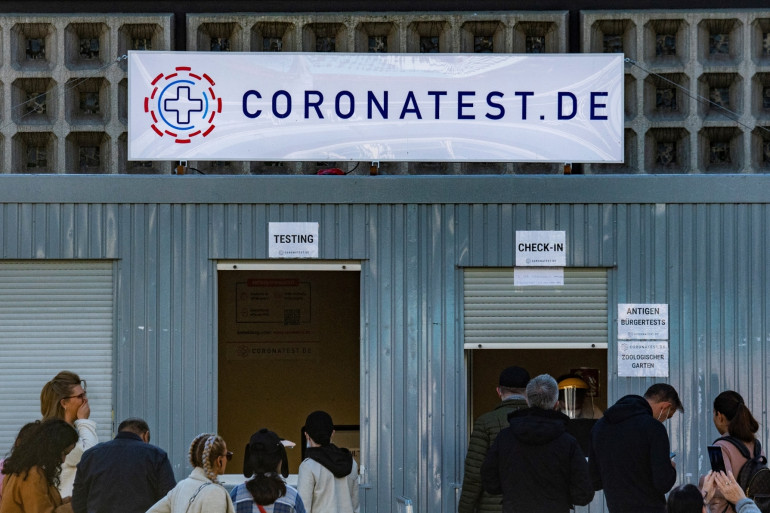
Spéciaux
Germany - Covid-19: fourth wave greeted with denial and weariness
2021-11-22 11:31:00

The Robert Koch Institute's reports on the Covid-19 epidemic in Germany have an air of déjà vu. On Thursday, November 4, we learned that the incidence rate was 154 cases per 100,000 inhabitants, that 2,226 patients were hospitalized in intensive care and that 165 people had died in the last twenty-four hours. In its report of November 4, 2020, the Robert Koch Institute gave roughly similar figures.
The famous "German model" takes on water. While Europe is seeing a fourth wave of the Covid-19 epidemic surge, Germany, set an example in the spring of 2020, is now a model not to be followed. Across the Rhine, the incidence rate has just reached a peak not reached since the beginning of the health crisis. It exceeds the threshold of 300 cases per 100,000 inhabitants, and 35,000 new cases of Covid-19 were recorded on Monday, November 15. Hospitals are now saturated and understaffed. Interviewed by German radio NDR, the country's most famous virologist, Christian Drosten, considered the death of 100,000 more people likely if nothing is done to stop the epidemic runaway.
More tests and controls
The Länder have also decided to strengthen the protection of the elderly by requiring free testing of visitors and care staff working in seniors' residences. They also promised to strengthen the control of the rule reserving access to restaurants and cultural places to people who have been cured, tested or vaccinated. But they refused to impose vaccination to access these places, leaving the decision to the Länder in the most infected areas. From Monday, Saxony will refuse access to the unvaccinated.
Extension of the "2G rule"
More than the outbreak of the epidemic, greeted with more resignation than fear, it is above all the prospect of new restrictions that animates the conversations, this Wednesday, in Meissen. Decided the day before by the regional government of Saxony, these will result in "the extension of the '2G rule'", as the local daily headlined that morning. In concrete terms, this means that access to certain places, such as restaurants, cinemas or concert halls, will be reserved only for people who have been vaccinated ("geimpft") or cured ("genesen"). On the other hand, those that are only tested ("getestet") will no longer be able to enter.
While Saxony is the Land with the lowest vaccination rate (56% of the population, 10 points lower than the national average), the measure has a clear objective: to encourage as many refractories as possible to be vaccinated to prevent the number of serious cases from skyrocketing and avoid saturation of the hospital system.